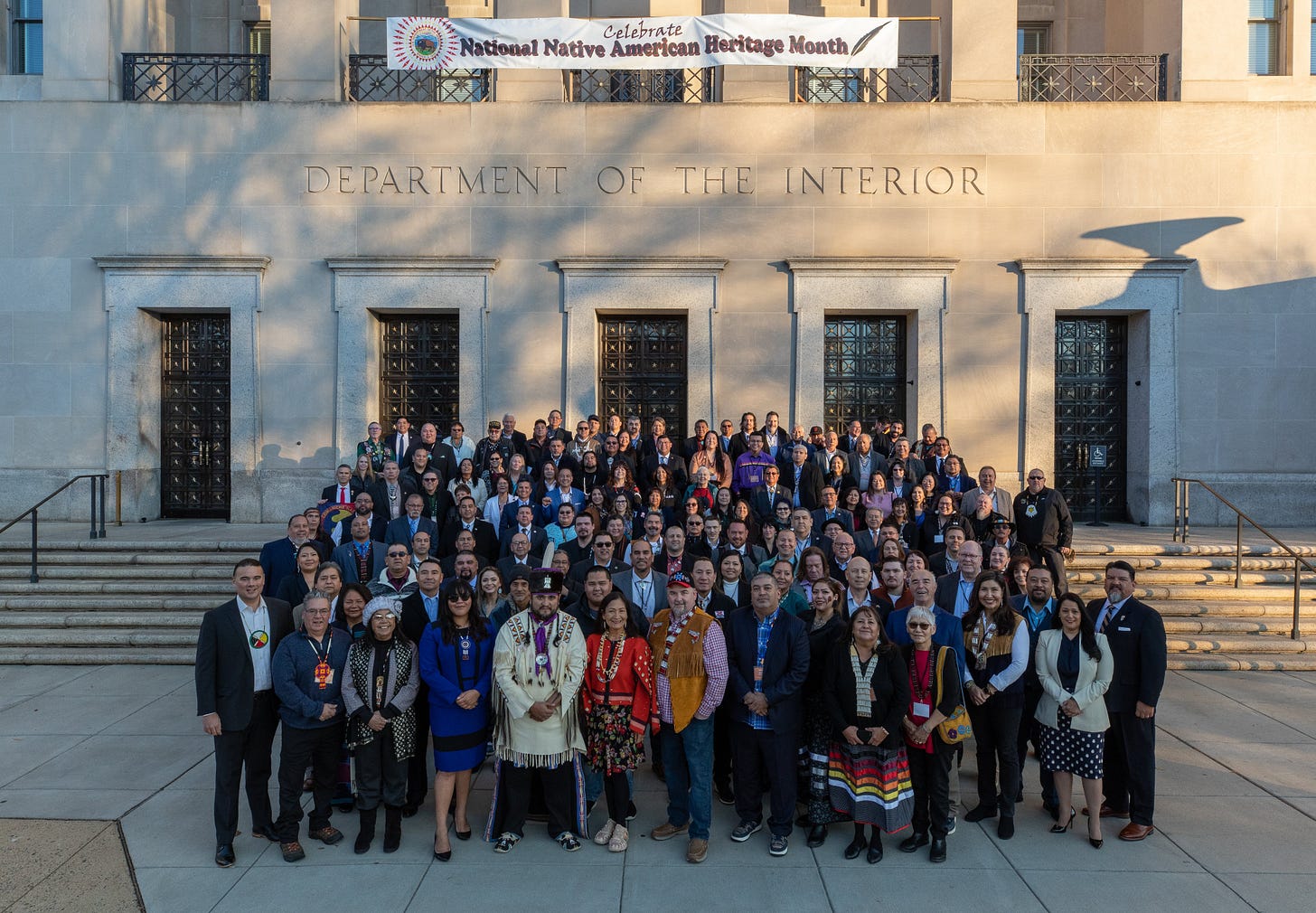Native legislative momentum in waning days of 117th U.S. Congress
Lumbee/Choctaw federal recognition, funding for IHS, new trust lands, environmental & cultural protections, Native veteran support, tribal college enhancements all in various stages of progress.

WASHINGTON — As tribes await word on whether federal recognition will be granted by the U.S. Congress to the Lumbee Tribe and/or the …
Keep reading with a 7-day free trial
Subscribe to Indigenous Wire to keep reading this post and get 7 days of free access to the full post archives.

